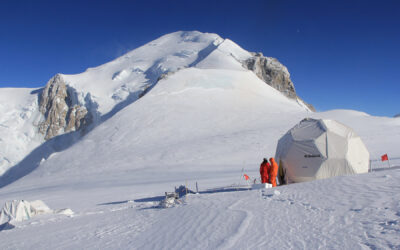Reno, Nev. (Feb. 26, 2019) – The Board of Trustees of the Desert Research Institute (DRI) Research Foundation are pleased to announce the unanimous approval of Ms. Tina Quigley as the organization’s new chair, effective February 8, 2019.
As general manager of the Regional Transportation Commission of Southern Nevada, Tina Quigley brings more than 25 years of civic leadership and experience in air and ground transportation management to the DRI Foundation. She is on the leading edge of improving how residents, workers and visitors travel the Las Vegas valley.
The DRI Foundation’s past chair, Mr. Roger Wittenberg, has taken on a new role as DRI’s Special Assistant for Business Strategy. He will work alongside Brian Speicher, DRI’s Business Development Lead and Executive Director of the Desert Research Corporation (DRC), to cultivate DRI’s portfolio of emerging intellectual property and expand the opportunities for DRI scientists to create solutions to economically impactful challenges across the state of Nevada and beyond.
“I am excited for Roger’s new role with the DRC, and I am honored to welcome Tina as the first woman to serve as chair of the DRI Research Foundation,” said Kristen Averyt, Ph.D., President of DRI. “I am confident in her ability to lead the DRI Foundation in its renewed effort to create new opportunities for donors to financially support DRI faculty and students.”
The Board of Trustees of the DRI Foundation also welcomed the following individuals as the elected officers of the Foundation for a one-year term.
- Thomas Gallagher, Vice-Chair
- Leonard LaFrance, Treasurer
- Holger Liepmann, Secretary
Additionally, the DRI Foundation proudly welcomed three new Fellows in 2019.
- Joseph Guild
- Robin Holeman
- Robert Holeman
The DRI Foundation was formed in 1982 as a not-for-profit, 501(c)3 to financially support the mission and vision of DRI. The DRI Foundation’s mission is to maximize DRI’s global environmental impact by securing necessary funding, promoting DRI to multiple constituencies and expanding DRI’s reach. For more information about the DRI Foundation or DRI please visit www.dri.edu.


